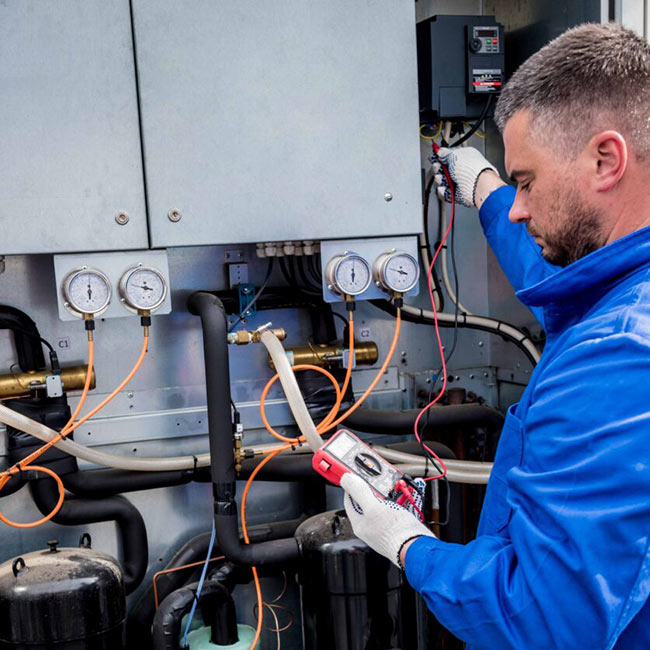February 20, 2024
Wiring and Using Generators without Hazards

Generators are invaluable tools, providing essential power during outages and emergencies. However, they can create safety hazards if not wired and used correctly. Adhere to the following generator safety guidelines to enjoy everything this appliance has to offer while preventing hazardous situations.
Outdoor Operation is the Basis of Generator Safety
Using generators safely involves more than just plugging in and switching on—generator electrical connections must be made with the utmost care. The first crucial tip is to never use portable generators indoors. This includes avoiding semi-enclosed spaces like garages, walk-out basements, or crawl spaces, even if ventilated.
The reason is simple—generators produce carbon monoxide, a colorless, odorless gas that can kill if inhaled at high enough concentrations. Therefore, keeping the generator outdoors and away from windows, doors, and vents is essential to prevent carbon monoxide poisoning.
Wiring a Generator to Your House Safely
If you purchase a built-in standby generator, you can wire the appliance directly to your home’s electrical panel. In this situation, using a generator transfer switch is non-negotiable. This switch is crucial because it prevents backfeeding of electricity into utility lines, which can endanger utility workers and your neighbors. A transfer switch also protects your home’s electrical system from power surges.
The potential hazards of improper generator wiring can be serious, so a qualified, licensed electrician should handle the work. Be sure to hire a professional who follows all local electrical codes and guidelines for the best results.
Understanding Your Generator’s Capacity
One often overlooked aspect of generator hazard prevention is knowing your generator’s limits. Overloading the appliance can lead to overheating and failure. To avoid this, calculate the total wattage of all devices you plan to connect to the generator at any one time, ensuring it does not exceed the generator’s capacity.
For example, a 3-kilowatt (kW) generator can safely power a combination of devices, like a 500-watt television, 1,200-watt window AC unit, and 800-watt microwave, with some capacity left for lighting. Keep in mind that many appliances have a higher starting wattage, including air conditioners, refrigerators, and sump pumps. You’ll want a generator that can handle the highest starting wattage of the appliances you hope to power, plus all the running wattages combined.
Safe Generator Operation Tips
Using your generator safely goes beyond the initial setup. Here’s what to keep in mind:
- Don’t use a portable generator in the rain.
- Operate it on a flat, stable surface under an open structure.
- Use heavy-duty, outdoor-rated extension cords.
- Turn off the generator and let it cool before refueling.
Choose Seidel Electric Inc. for Your Generator Needs
Seidel Electric Inc. has been serving Blairstown, NJ, and the Tri-State Area since 1944. Our status as a Certified Select Generac PowerPRO Dealer makes us an authority on generators. You can trust our knowledgeable and experienced electricians to deliver the highest standards of electrical safety with generators. Being a family-owned and operated business, we pride ourselves on being actively involved in the community and helping you power your home safely. For expert assistance with generator wiring or safety checks, please contact us at (908) 362-6191.
